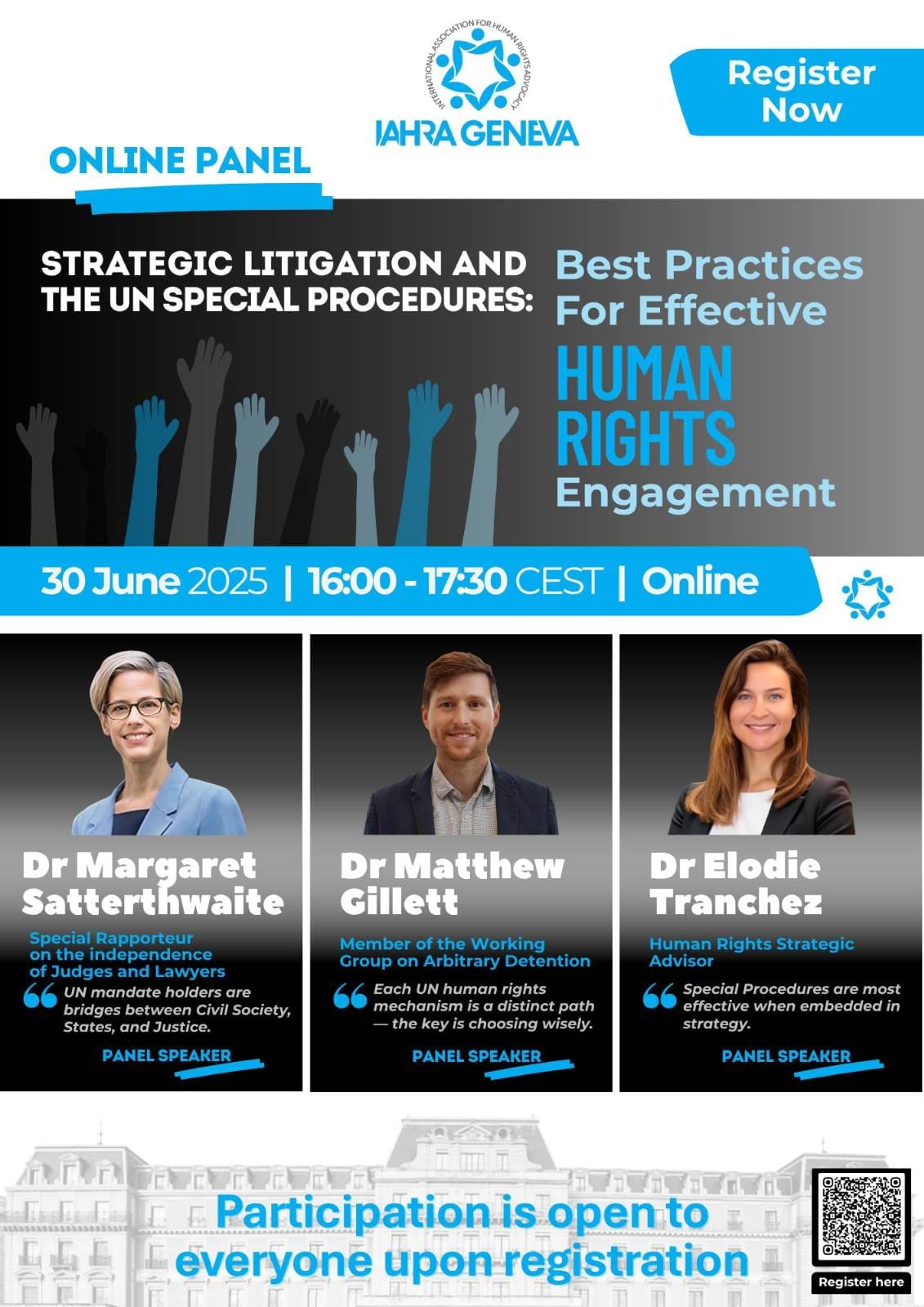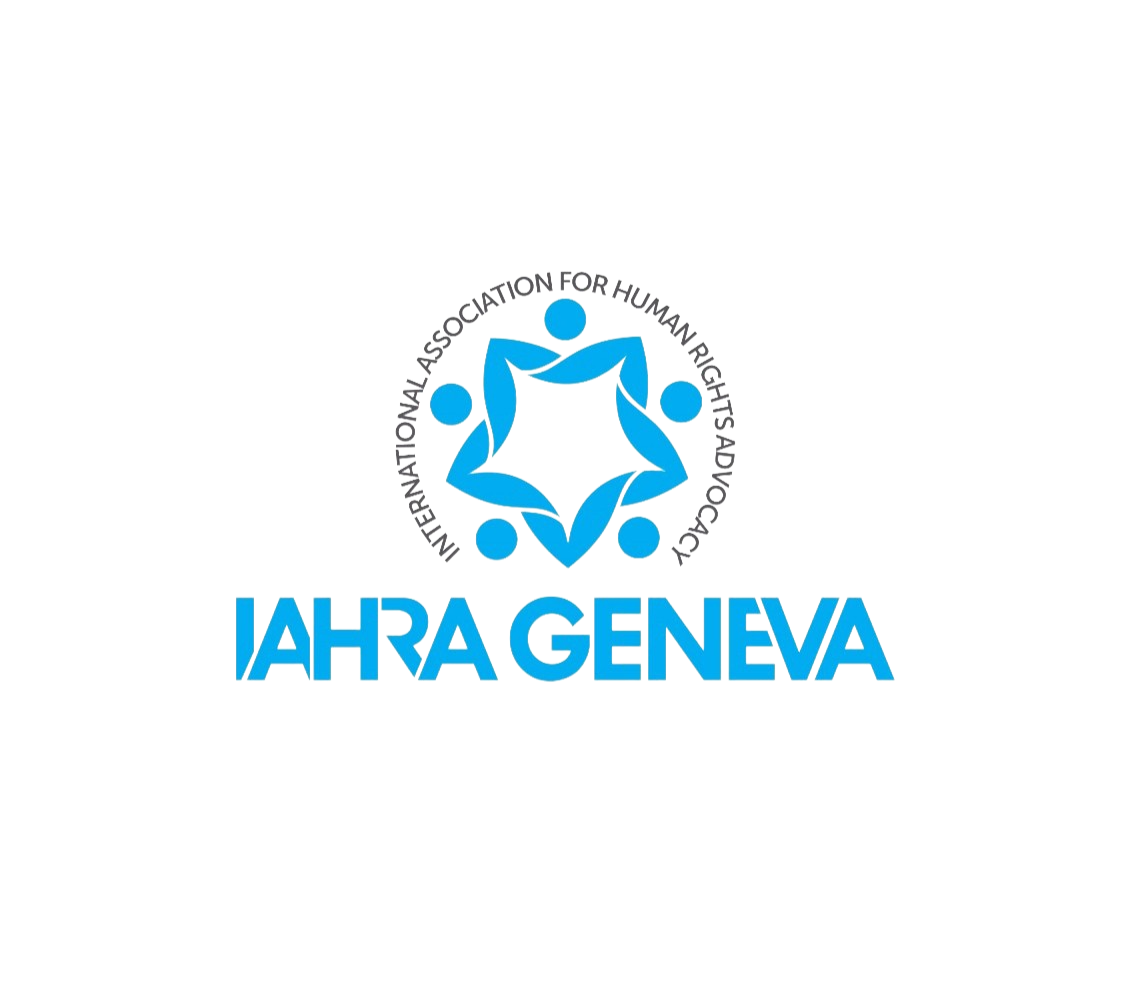Events
This page is dedicated for IAHRAG's events and webinar series
IAHRAG's Cocktail Reception
80 Years On: Barriers, Representation, and Civil Society’s Role within the UN System
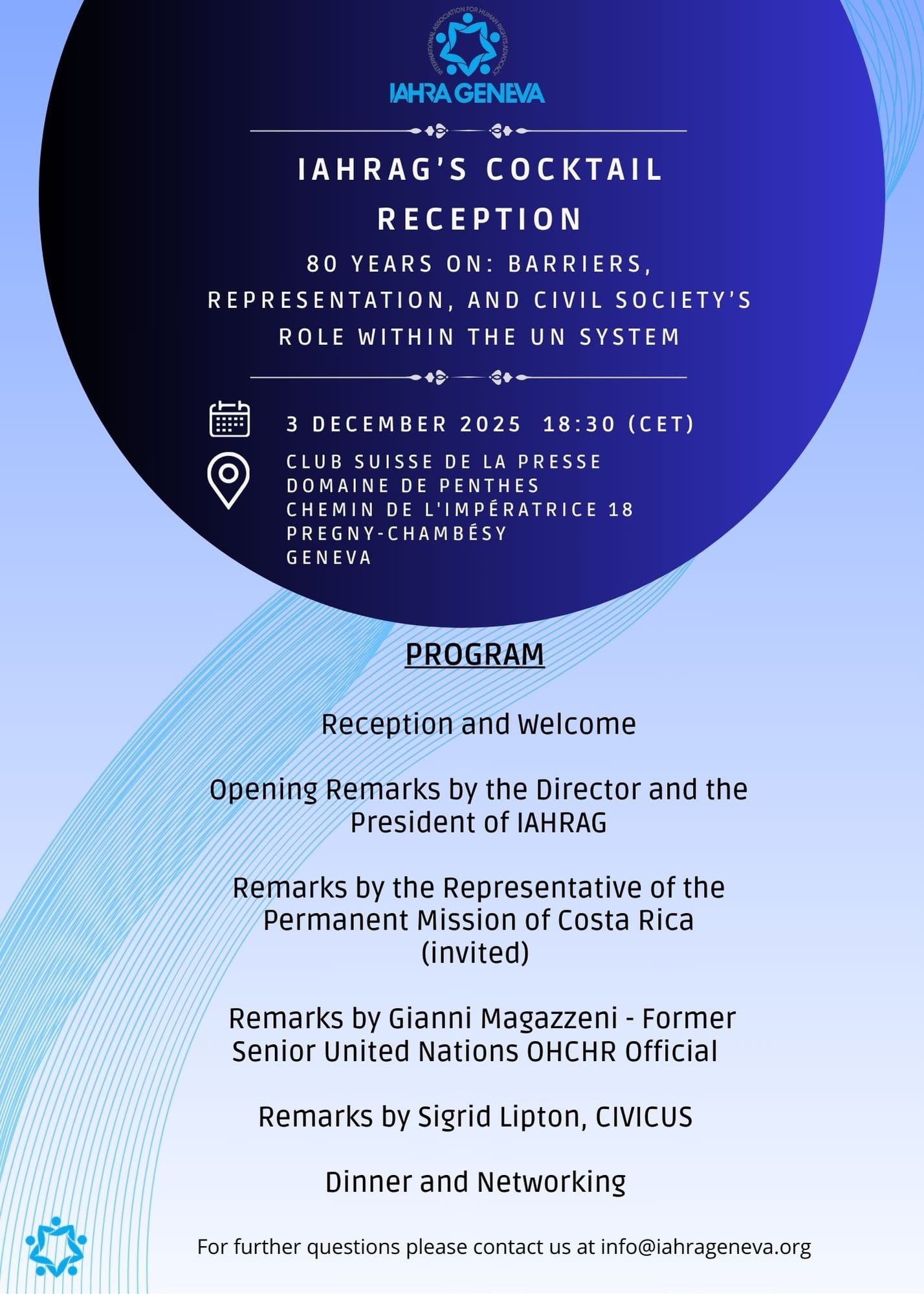
Register via here:
As the UN marks its 80th anniversary, civil society’s struggle to sustain meaningful participation in multilateral spaces remains as challenging as ever. IAHRAG, firmly believing that civil society participation is essential to represent the “peoples” upon which the UN was founded, aims to organize an event on the occasion of Human Rights Day (10 December) to highlight the vital role of civil society in advancing the goals of the UN, particularly the promotion of respect for human rights.
The event will also serve as a space for reflection on civil society’s ongoing struggle for participation and representation within the UN system, to examine the barriers that continue to hinder its engagement, and to discuss possible solutions to overcome the exclusion of so-called “unwanted” NGOs.
Organized in an informal format, the evening will also serve as a networking opportunity to strengthen partnerships and dialogue among different actors, and as an occasion to present the IAHRAG 2024 Annual Report, highlighting the organization’s activities and achievements over the past year.
IAHRAG's Webinar
More Than Monitoring: Exploring the Rapid Response Power of Treaty Bodies
Register via the link below:
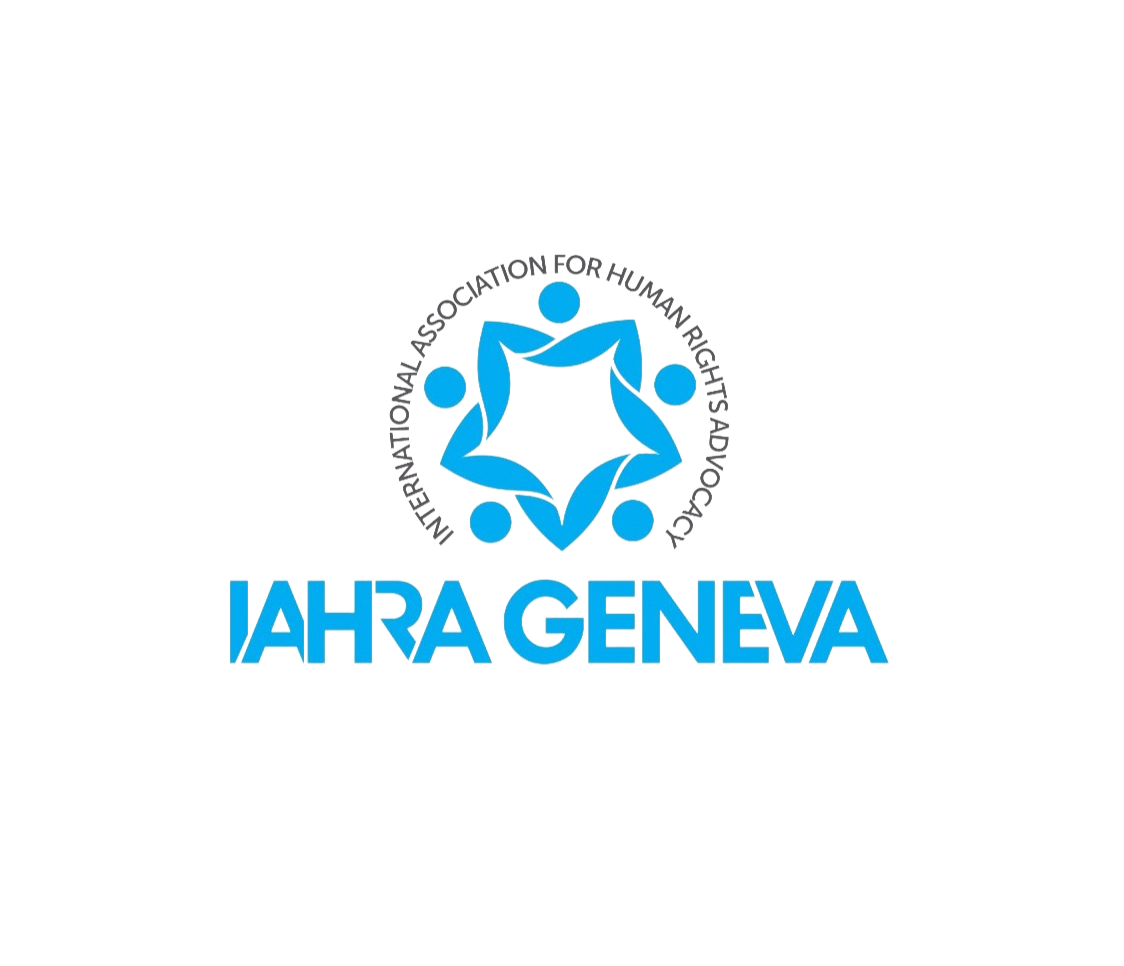
September 16, 2025 at 16:30 🕟 via ZOOM
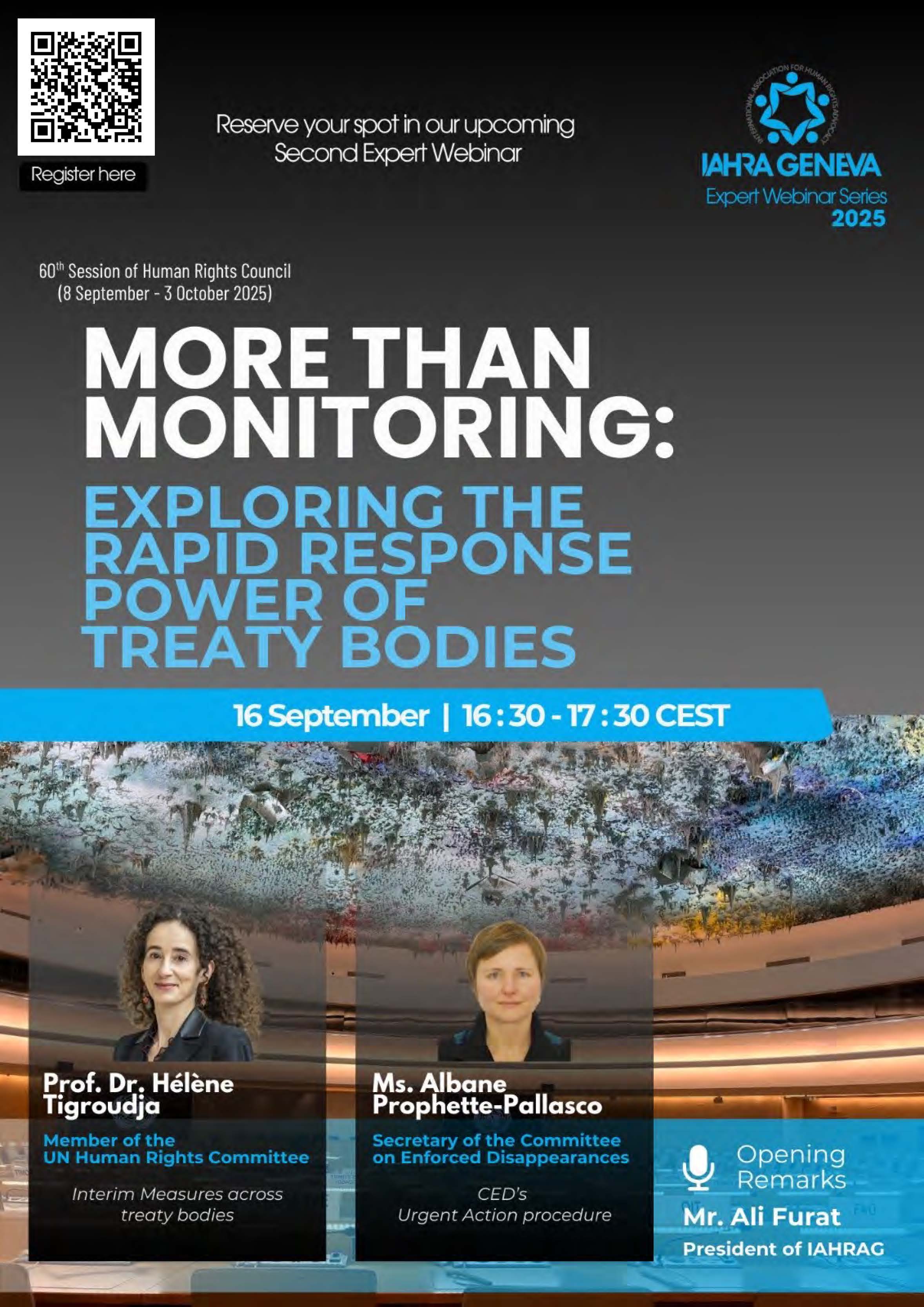
The primary mandate of the ten UN human rights treaty bodies, except for the Subcommittee on Prevention of Torture (SPT), is to monitor the implementation of their respective treaties, either through review of State reports or of individual petitions. This later function includes, either explicitly or implicitly, the authority to recommend interim and protection measures in urgent cases to protect individuals from irreparable harm before a full review of the petition can occur. Some treaty bodies derive this power from their respective optional protocol or even treaty (Article 5 of the Optional Protocol to Convention on the Elimination of All Forms of Discrimination against Women; Article 6.1 of the Optional Protocol to the Convention on the Rights of the Child; Article 5(1) of the Optional Protocol to the ICESCR; article 31 (4) of the Convention for the Protection of All Persons from Enforced Disappearance; Article 4 of the Optional Protocol to the Convention on the Rights of Persons with Disabilities ), while others rely on their rules of procedure (Rule 94 of the Human Rights Committee, Rule 114 of the Committee against Torture, Rule 104 of the Committee on the Elimination of Racial Discrimination (CERD)). In addition to this, CERD and the Committee on Enforced Disappearances (CED) possess additional mechanisms for urgent action: CERD’s Early warning measures and Urgent Procedures (see the 2007 guidelines for the early warning and urgent action procedure, p. 115 and f, A/62/18) and CED’s Urgent Action procedure (article 30 of the CED).
Despite their importance, the criteria and processes for granting interim measures or triggering urgent procedures are not so much known. Committees do not publish their reasoning when accepting or rejecting requests for interim measures, leaving limited guidance in jurisprudence (some insight, however, can be drawn, for example, from mandates such as that of the Special Rapporteur on new communications and interim measures, which considers factors like the imminence and irreparability of harm (CCPR/C/110/3, paras. 9–10)). Moreover, awareness and understanding of the full scope of the CERD and CED’s urgent powers remain limited.
In light of the above, this expert webinar aims to explore the often-overlooked rapid response powers of human rights treaty bodies. Experts from various committees will provide in-depth insights into their respective mechanisms for urgent action, interim measures, and the interpretive standards used. The goal is to foster greater understanding and informed use of these protective tools.
Speakers and Topics:
- Interim Measures across treaty bodies: reflections on innovative approaches and practices in this field, Prof. Dr. Hélène Tigroudja, member of Human Rights Committee
2. CED’s Urgent Action procedure, Ms. Albane Prophette-Pallasco, Secretary of the Committee on Enforced Disappearances
Opening Remarks:
Ali Furat, President of IAHRAG
Moderator:
A. Ozcan, Human Rights and Advocacy Officer at IAHRAG
Organizer & Continuity:
This webinar is organized by IAHRAG as the second session in its expert series on leveraging international human rights mechanisms. The series aim to further enhance strategic litigation capacity, engagement with treaty bodies, and advocacy before regional and international human rights mechanisms.
Registration
Participation is open to everyone upon registering (use the registration link above)
Disclaimer:
This event may be recorded by the International Association for Human Rights Advocacy in Geneva (IAHRAG). These recordings may be used by IAHRAG for both internal and external communication purposes, including informational, promotional, and illustrative content shared via its various media platforms (such as its website, social media channels, and newsletters).
By taking part in this event, you consent to the possibility of appearing in these recordings, photographs, or films, and to their subsequent use by IAHRAG as described above.
Your personal data will be collected solely for the purpose of organizing this event.
IAHRAG's Webinar on Strategic Litigation and the UN Special Procedures: Best Practices for Effective Human Rights Engagement
Held on June 30, 2025
